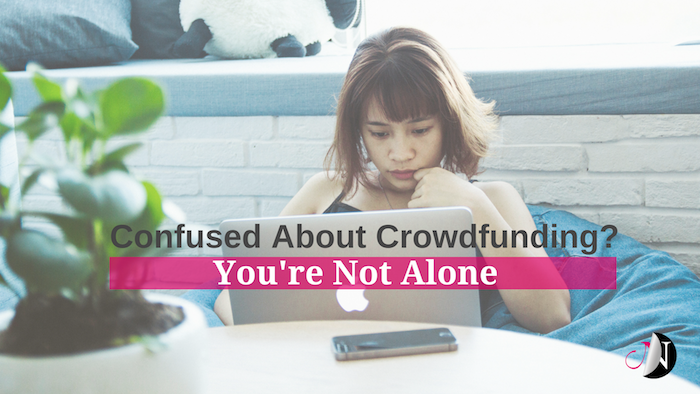Confused About Crowdfunding - You’re Not Alone

So, you’ve heard of crowdfunding, but you're not entirely sure what it really means? First off, you’re not alone. As a crowdfunding platform, we meet many people who run the gamut of knowledge from crowdfunding expert to people who are confused by the different types available. After all, this new method of funding small businesses is not traditional. It disrupts the funding status quo of the startup ecosystem and democratizes the process of launching and growing a small business.
No longer do companies have to convince investors to buy into their product idea or business. Nor do they have to beg the bank for a loan which may offer unfavorable terms or simply not enough money to really get started. Now, small businesses can go to the crowd to ‘invest’ in their product.
This term - ‘invest’ - means different things depending on the type of crowdfunding platform you’re looking at. It also determines the way the business or product is set up. The most popular is rewards based, since the launch of Kickstarter in 2009, but equity based and donation based crowdfunding are becoming hugely popular now as well.
How are these different you ask?
First, a very basic definition for you:
Rewards based - backers receive a reward, be it the product itself, a simple thank you card, or another tangible item in exchange for investment.
Equity based - backers who invest in a company receive shares of the company for their investment.
Lending based - backers receive interest on their money invested in a campaign
Donation based - nothing is offered in return to the backer for their investment in a campaign apart from the warm fuzzies that accompany doing something good.
That’s the basics.
What it means to ‘back’ or ‘support’ a rewards based crowdfunding project?
Supporting a rewards based crowdfunding project often means you are pre-purchasing the product being launched. Sometimes there are different types of rewards offered depending on the business. For example, Whizpa, a kids activity review website, offered discount coupons to various activities because it is not itself a tangible item that can be shipped to backers. What it does not mean is that backers own any part of the company or that anything is expected to be paid back. It’s not an equity or lending model.
What’s more important, is that by backing a campaign supporters show their interest in a product or idea. The customer or ‘supporter’ says, “This is a great idea and it would improve some aspect of my life. I want it and I am willing to help this become reality”. The item or idea may not be ready yet. So by backing it, supporters accept they will have to wait for the item as their funds are going towards the work and materials required to take the idea to reality.
What if the project fails?
Well, one of the best things about crowdfunding for startups is that it provides the opportunity to validate an idea. Many rewards based crowdfunding projects use an ‘all or nothing’ model, meaning that if the funding target is not reached then supporters get their money back, the product is not launched and the campaigner goes returns to the drawing board. On donation based platforms, generally, the cause or charity keeps whatever is raised.
The campaign should tell you what happens if they don’t get funded as well as how the funds will be used.
Have more questions? Visit our FAQ page which addresses the most common questions asked by supporters and campaigners.
Still have questions? Contact us at [email protected] or +852 6016 1770